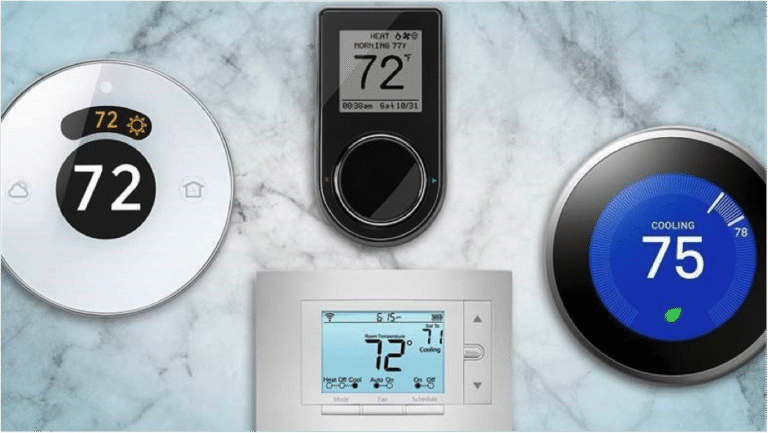Top 5 Sustainable Small Business Strategies
 Going green is known for its benefits to the environment, but did you know companies grow from it too? Research has shown that companies that have a positive environmental and social impact are more profitable long term. When done correctly, good sustainability practices can result in lower operating costs, better profitability, and superior share price performance.
Going green is known for its benefits to the environment, but did you know companies grow from it too? Research has shown that companies that have a positive environmental and social impact are more profitable long term. When done correctly, good sustainability practices can result in lower operating costs, better profitability, and superior share price performance.
Studies have found that 72% of Gen Z customers would spend more on sustainability, and have no problem switching brands, if necessary. While incorporating eco-friendly practices may be intimidating for small businesses, this guide will help you map out a plan for your brand. Here are five sustainable strategies to get started on the right foot – all while reducing your carbon footprint.
Go Paperless
Online services are for more than tech-savvy automation – they are ideal for running a paperless company, believe those at matchr.com. While going paperless sounds like a big step, it can be a leap for traditional businesses. The good news is that you can enjoy many perks while drastically reducing business waste.
Switch out all your processes, physical storage, and paper files for cloud networks. Using cloud occupies less space, makes things easier to search, and files can be safely shared with employees anywhere without making copies.
Decrease or Eliminate Commute
There are many ways you and your staff can decrease the number of cars on the road. Consider starting a rideshare program or help subsidize the cost of public transportation.
If that’s not within your means, you can make smaller changes by providing bike racks for cyclists. Another cost-efficient method to cut down on traffic pollution is by promoting remote work and hosting meetings online. You may not have a say on how people get to work, but you can still make it a goal to use as little gas as possible.
Create a Recycling Program
 Work with your waste management vendor to create an in-house recycling program for common office materials. You can safely dispose of old electronics, office supplies, computers, and monitors when needed. You and your staff can also recycle waste from take-out, and opt for franchises that use biodegradable food packaging.
Work with your waste management vendor to create an in-house recycling program for common office materials. You can safely dispose of old electronics, office supplies, computers, and monitors when needed. You and your staff can also recycle waste from take-out, and opt for franchises that use biodegradable food packaging.
If your business produces and packages items, it’s another way to double down on your recycling methods. Your sustainability efforts will reflect positively on your brand, as well as keep harmful waste from going into landfills. Here are some common materials found in worksites that must be recycled or disposed of properly:
- Paper
- Plastic
- Aluminium
- Cardboard
- Coffee or water cups
- Glass
- Electronic waste
- Food waste
- Garden organics (lawn clippings, leaves, branches, etc.)
Invest in Water and Energy Efficiency
 Switching out your own office equipment for something eco-friendly may take lots of time and money. Take it slow by slowly replacing them with energy-efficient electronic products (look for the EPEAT stamp of approval) and use environmentally friendly settings on office equipment.
Switching out your own office equipment for something eco-friendly may take lots of time and money. Take it slow by slowly replacing them with energy-efficient electronic products (look for the EPEAT stamp of approval) and use environmentally friendly settings on office equipment.
For lower budget changes, use natural lighting whenever possible. You can also replace incandescent light bulbs with compact fluorescent lamps. Energy-efficient light bulbs use one-quarter of the energy and produce 90% less heat, meaning that you’ll also save on your electricity bill.
Be aware of your water consumption as well! Whenever possible, you can conserve water by upgrading your facility with eco-friendly faucets, toilets, and hand dryers.
Develop Sustainability Work Policies and Training
 Small changes in lighting, heating, and air conditioning can have a huge impact on energy consumption. Get your team involved by developing sustainability policies and procedures to reinforce the efforts.
Small changes in lighting, heating, and air conditioning can have a huge impact on energy consumption. Get your team involved by developing sustainability policies and procedures to reinforce the efforts.
On top of going paperless and carpooling, set a standard to conserve energy by powering down equipment at the end of the day and enabling energy savings settings.
Add sustainability practices in your employee orientation, and be open to suggestions on how to make your company more eco-friendly. Your team’s wellbeing will improve knowing that their efforts are making a difference in the environment.
The Bottom Line
The challenge to sustain the environment can be overwhelming, but organizations, both large or small, can do their part. Instead of worrying about what’s not available to you, focus on what is at your disposal. With the right mindset, your business can be as good for our planet as it is for your customers.


